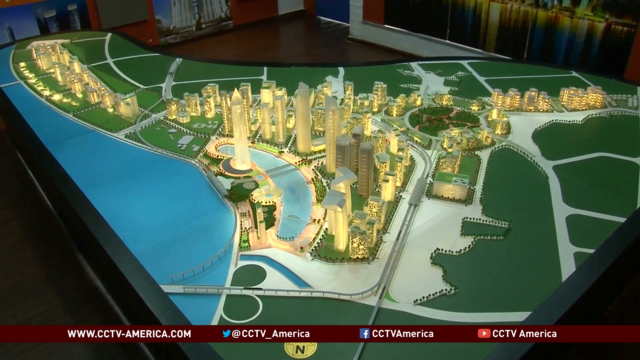India’s Prime Minister Narendra Modi had a plan to build 100 so-called “smart cities,” some to be built from the ground up and others retrofitted using the latest advances in information technology. CCTV America’s Shweta Bajaj reported on this ambitious vision and its challenges from New Delhi.

Urban India is getting crowded. Migration to cities is increasing by the year, which is why the Indian government has focused on creating these smart cities to solve urban problems and facilitate city management.
India has invested $1.2 billion so far and hopes to attract more funding from private investors and from abroad.
“Smart Town means everything from the urban infrastructure to the way we transact business in that particular town, which is the way we take care of social sector including schooling, health, security, governance,” Shankar Aggarwal, secretary of Indian Ministry of Urban Development, said.
India’s smart city program hopes to revolutionize city life and improve the quality of life for India’s urban population. However, with mass migration leading to basic issues, like water shortages and overcrowding, the pace at which these cities will be developed will be the key.
Modi’s smart cities projects were inspired by Gujarat International Finance Tec-city (GIFT) in the state of Gujarat, which is a smart city still under construction, and inspired by the Chinese city, Shanghai.
The government had much to do to make smart cities a success, Amit Bhatt, strategy head of urban transport company Embarq India, said
“Buses, with lot of non-motorized transport walking and cycling, is key for any sustainable development, so if you are looking at realizing the smart city dream, urban transport has to play a very active role in realizing of this dream,” Bhatt said.
Land acquisition and the displacement of rural farmers are among the challenges in smart city development.
“We need to understand that if someone is giving up their family wealth in the form of land which has been tilled by a certain family for generations, they are giving up everything they have. So it is really important that we make them partners in what we are trying to do,” Jagan Shan, the director of National Institute of Urban Affairs, said.
Government officials also pushed back against criticism that India should focus first on providing basic services like electricity and running water to all its citizens before moving ahead with smart cities, saying its plan will benefit all.
“The time has come for India to do what China has done about two decades ago, which is to leapfrog. Information and communication technology and smart use of big data, the combination of these two things affords us a great opportunity to upgrade systems, at the same time to provide for new needs,” Shan said.
 CGTN America
CGTN America

